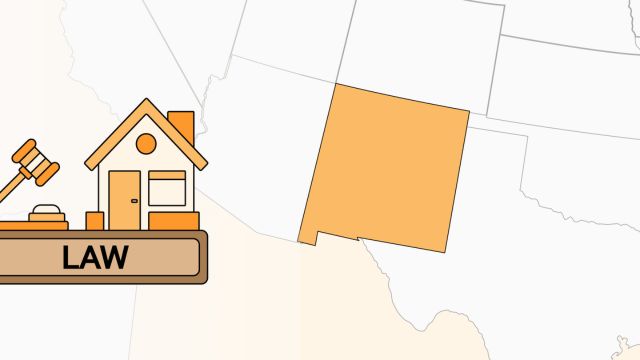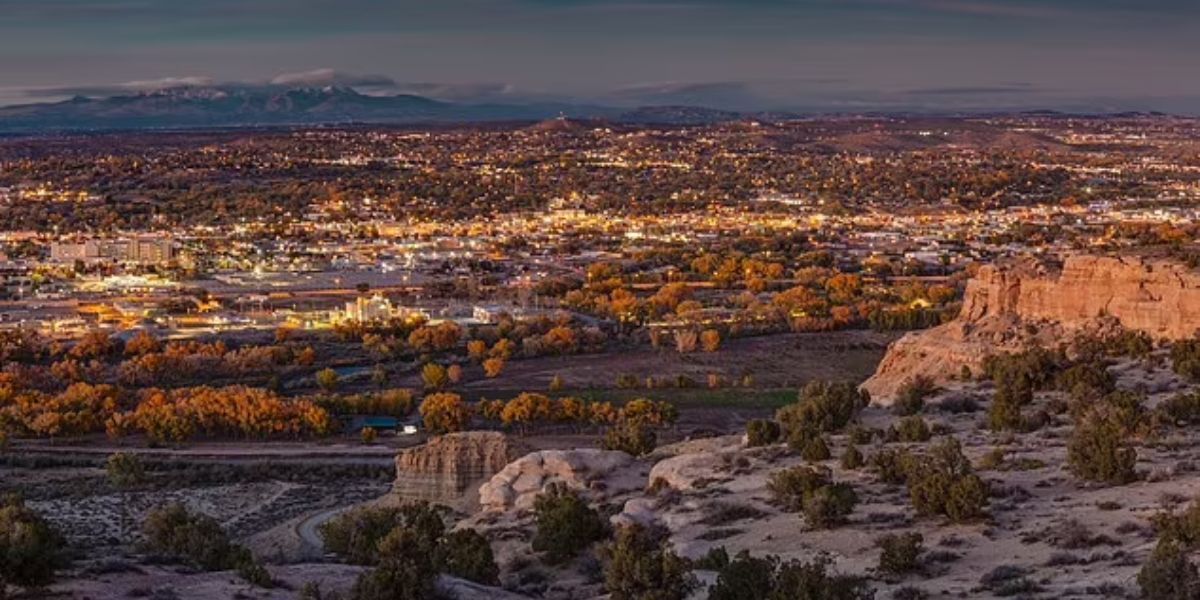As the cost of living continues to rise across the United States, tenants are increasingly concerned about rent hikes. New Mexico, like many other states, has seen its fair share of rental price increases, prompting the need for tenants to stay informed about their rights and protections.
If you’re renting a property in New Mexico in 2024, it’s crucial to understand the laws surrounding rent increases and how they affect you as a tenant.
This guide will break down New Mexico’s rent increase laws for 2024 and outline the protections that are in place for renters.
1. How Much Can Rent Increase in New Mexico?
In New Mexico, there are no statewide rent control laws that limit the amount by which a landlord can increase rent. This means that, for most rental properties, the landlord has the right to raise rent by any amount they deem appropriate — provided they follow proper notice and timing requirements. However, there are a few important things tenants should be aware of:
Notice Requirements for Rent Increases
New Mexico law requires landlords to provide tenants with advance notice before increasing the rent. The notice period depends on the terms of the lease:
- Month-to-Month Tenancies: For tenants on a month-to-month lease, landlords must give at least 30 days’ notice before a rent increase takes effect. This applies whether the rent increase is small or large.
- Fixed-Term Leases: For tenants with a fixed-term lease (such as a 6-month or 1-year lease), rent cannot be increased until the lease expires unless the lease itself specifically allows for an increase during the term. If the landlord wants to raise rent after the lease ends, they must provide notice before the lease term ends.
It’s important to note that a rent increase notice must be given in writing. Verbal notifications are not valid, and the notice must specify the exact amount of the rent increase and when it will take effect.
2. Are Rent Control Laws in Place in New Mexico?

Unlike some other states, New Mexico does not have statewide rent control laws. This means that landlords have the flexibility to increase rent as much as they see fit, subject to the notice requirements mentioned earlier.
However, there are certain cities and counties in New Mexico that may impose their own rules regarding rent control or other tenant protections. For example, Albuquerque, the state’s largest city, has had discussions in the past about rent control and affordable housing, but no formal rent control laws have been enacted as of 2024.
Some jurisdictions may have additional regulations or programs designed to protect tenants from extreme rent hikes, but statewide, rent control does not currently exist.
3. Protections Against Discriminatory Rent Increases
Even though New Mexico doesn’t have rent control, landlords are still prohibited from increasing rent for discriminatory or retaliatory reasons. The state adheres to both federal and state fair housing laws that protect tenants from discrimination based on race, color, national origin, religion, sex, disability, or familial status.
New Jersey Rent Increase Regulations Explained: Protect Your Rights as a Tenant
Additionally, landlords cannot increase rent as a form of retaliation against a tenant. For instance, if a tenant has recently complained about poor living conditions or reported violations of health and safety codes, a landlord cannot increase rent in retaliation. If you believe your rent increase is retaliatory or discriminatory, you may have legal recourse.
4. Rent Increase Frequency
While there are no specific restrictions on how often rent can be increased in New Mexico, frequent rent hikes within a short period could be a cause for concern. Tenants on month-to-month leases may find themselves facing more frequent increases, but again, the landlord must provide proper written notice each time.
If you believe that your rent increases are unreasonable or excessive, you may consider negotiating with your landlord. If you are in a fixed-term lease, it may be beneficial to lock in a rate for the duration of the lease to avoid sudden or unexpected hikes.
5. Rent Assistance Programs and Financial Protections
For tenants struggling with rent increases, several assistance programs are available in New Mexico that can provide financial relief. These programs can help tenants who are facing difficulties due to rent hikes or other financial hardships. Some of these include:
- Emergency Rental Assistance Program (ERAP): New Mexico has several programs aimed at helping tenants who have been affected by the COVID-19 pandemic or other financial challenges. These programs provide emergency rental assistance to prevent eviction and offer support for paying back rent.
- Section 8 Housing Choice Voucher Program: This federally funded program offers rent assistance to low-income individuals and families, ensuring that rent is affordable based on the tenant’s income. Section 8 vouchers can be used in participating rental units, and the tenant pays a portion of the rent while the government covers the remainder.
- State and Local Housing Assistance Programs: Various state and local programs may offer rent subsidies, utility assistance, or other financial aid to help with housing costs. Tenants who are struggling to meet rent payments should inquire about available assistance in their area.
6. What to Do If You Receive an Unreasonable Rent Increase
If you believe that your rent increase is unreasonable or violates any terms of your lease, you have several options:
- Negotiation: The first step is often to try to negotiate directly with your landlord. If the increase is higher than expected or unaffordable, ask if they would be willing to reduce the increase or offer a compromise.
- Seek Legal Help: If you believe that your rent increase is discriminatory, retaliatory, or violates your lease agreement, you may want to seek legal advice. New Mexico Legal Aid and other tenant advocacy groups can provide support and guidance on how to challenge the increase.
- File a Complaint: Tenants in New Mexico who feel their rights have been violated can file complaints with the New Mexico Attorney General’s Office or their local housing authority. Legal action may be necessary if you are being unfairly charged higher rent or facing discrimination.
Conclusion
In 2024, New Mexico tenants are not protected by statewide rent control, but they do have rights when it comes to rent increases, including required notice periods, protections against discrimination, and options for assistance if they are struggling financially.
If you are renting in New Mexico, it’s essential to stay informed about your rights and responsibilities and know where to turn for help if you face an unexpected or unfair rent hike. Whether through negotiation, legal assistance, or available rent assistance programs, there are steps you can take to manage rent increases and protect your financial well-being.




